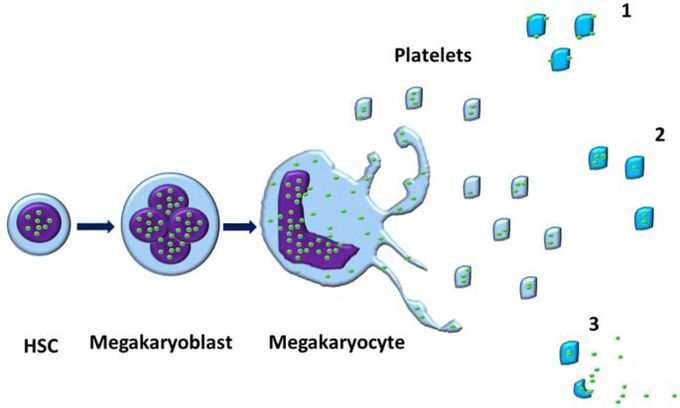

Nurse.ali fadel abassover 4 years ago

Megakaryocytes are cells in the bone marrow responsible for making platelets, which are necessary for blood clotting. One mystery regarding megakaryocytes is how they achieve their enormous size and large number of nuclei.
Other commentsSign in to post comments. You don't have an account? Sign up now!

